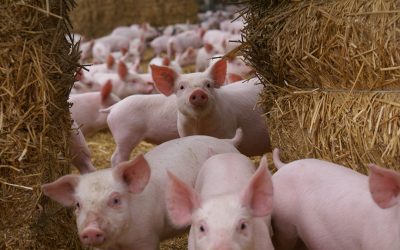Encouraging results aflatoxin protected corn

The spiralling use of corn for food and fuel is creating heightened concerns about contamination of this staple crop with deadly aflatoxin. Researchers at Monsanto have shown encouraging preliminary results of a new crop variety showing reduced levels of the mycotoxin.
Bruce Hammond, Ph.D., a lead researcher at Monsanto’s Product Safety Center,
says that aflatoxin is a potent liver carcinogen and source of other health
concerns in humans and animals. Tightly regulated by the FDA, Hammond said
threatening levels of the contaminant are kept out of the food supply in the
United States. But in Africa and the developing world, poor regulation has made
aflatoxin a significant food safety issue.
At the 235th national meeting
of the American Chemical Society in New Orleans, Hammond and others presented
advances towards the production of corn less susceptible to aflatoxin
contamination.
Second generation Bt corn
In the quest to
engineer better corn crops, scientists at Monsanto are targeting insect pests
that can rob corn yield and decrease grain quality. The first generation of
their so-called “Bt corn” incorporated a gene into the corn genome from Bacillus
thuringiensis (Bt).
Subsequent studies confirmed a secondary benefit —
with less insect damage on corn ears, the Bt corn suffered less fungal infection
and had lower levels of certain mycotoxins, but not aflatoxin.
Hammond’s
team followed up on these observations with the aim to reduce aflatoxin levels.
Today, Monsanto researchers aim to confer even more insect protection to the
second generation of Bt corn. Pending regulatory approval, the new varieties
could include additional genes that guard against a broader variety of pests
like the fall armyworm, a particular threat to the southern United States
associated with aflatoxin contamination.
Encouraging
results
Preliminary trials found that the new Bt corn variety had reduced
levels of aflatoxin, said Hammond. Other sites in the US and in Argentina also
showed lower insect damage to the corn from other pests. “These preliminary
results are encouraging, and we look forward to more trials performed under a
variety of environmental conditions to show that these reductions are
reproducible,” said Hammond. The researcher’s future efforts aim to lessen the
effect of other environmental stressors that can trigger fungal growth in
plants.
Related website:
Monsanto











